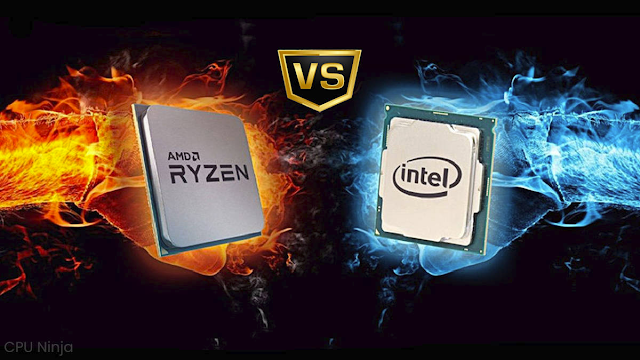Intel Core i9-14900K vs. AMD Ryzen 7 7800X3D - Review
10/14/2023Product Review: Intel Core i9-14900K vs. AMD Ryzen 7 7800X3D
If you are looking for a high-performance processor for your gaming or productivity needs, you might be interested in the latest offerings from Intel and AMD. The Intel Core i9-14900K and the AMD Ryzen 7 7800X3D are both flagship CPUs that promise to deliver impressive performance in various tasks. But which one is better for you? In this review, we will compare the specifications, features, and benchmarks of these two processors and help you decide which one suits your needs.
Specifications
The Intel Core i9-14900K is part of the 14th generation Raptor Lake Refresh series, which is based on a 10nm process and features a hybrid core architecture. The CPU has 24 cores and 32 threads, with 8 performance cores (P-Cores) and 16 efficiency cores (E-Cores). The P-Cores can boost up to 6 GHz, while the E-Cores can reach up to 4.4 GHz. The CPU has a base TDP of 125W and supports up to 128 GB of DDR5-4800 memory in dual-channel mode.
The AMD Ryzen 7 7800X3D is part of the Ryzen 7000 series, which is based on a 5nm process and features the Zen 4 architecture. The CPU has 8 cores and 16 threads, with a base clock of 4.2 GHz and a boost clock of 5 GHz. The CPU has a TDP of 120W and supports up to 128 GB of DDR5-5200 memory in dual-channel mode.
Features
Both processors support PCIe Gen 5, which offers double the bandwidth of PCIe Gen 4 and enables faster data transfer between the CPU and other components such as graphics cards, SSDs, and network cards. Both processors also support AVX-512, which is a set of instructions that can accelerate various workloads such as artificial intelligence, machine learning, cryptography, and video processing.
The Intel Core i9-14900K has some unique features that set it apart from the AMD Ryzen 7 7800X3D. One of them is the Adaptive Boost Technology (ABT), which allows the P-Cores to dynamically adjust their frequency based on the power and thermal headroom available. This means that the CPU can potentially exceed its rated boost clock under certain conditions, such as when using high-end cooling solutions or when running lightly threaded applications. Another feature is the Intel Deep Learning Boost (DL Boost), which enhances the performance of AI and ML applications by using vector neural network instructions (VNNI).
The AMD Ryzen 7 7800X3D also has some exclusive features that give it an edge over the Intel Core i9-14900K. One of them is the Infinity Cache, which is a large on-die cache that reduces the latency and bandwidth requirements of accessing the main memory. This improves the gaming performance and efficiency of the CPU, especially at higher resolutions and settings. Another feature is the Precision Boost Overdrive (PBO), which allows the CPU to automatically overclock itself beyond its rated boost clock by using the available power and thermal headroom. This means that the CPU can deliver higher performance without manual tuning or tweaking.
Benchmarks
According to some leaked benchmarks, the Intel Core i9-14900K outperforms the AMD Ryzen 7 7800X3D in most gaming scenarios, especially at lower resolutions and settings. The Intel CPU can achieve up to 23% higher frame rates than the AMD CPU in some games, thanks to its higher core speed and ABT feature. However, the AMD Ryzen 7 7800X3D closes the gap at higher resolutions and settings, where the GPU becomes more of a bottleneck. The AMD CPU also performs better in some productivity tasks, such as video editing, rendering, and compression, thanks to its larger cache and PBO feature.
Conclusion
The Intel Core i9-14900K and the AMD Ryzen 7 7800X3D are both excellent processors that can handle any task you throw at them. However, depending on your preferences and use cases, you might prefer one over the other. If you are mainly interested in gaming at lower resolutions and settings, or if you need to run AI and ML applications that benefit from DL Boost, then you might want to go for the Intel Core i9-14900K. However, if you are looking for a more balanced processor that can perform well in both gaming and productivity tasks at higher resolutions and settings, or if you want to take advantage of the Infinity Cache and PBO features, then you might want to opt for the AMD Ryzen 7 7800X3D. Either way, you won’t be disappointed with your choice.
Check out the top selling best computer CPUs on Amazon.

